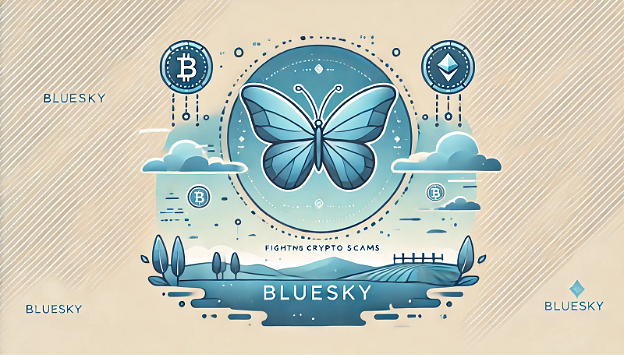Twitter Rival BlueSky Fights Crypto Scams

BlueSky, the decentralized microblogging platform often seen as a competitor to Twitter, has recently surpassed 20 million users. This milestone, however, has been met with a surge in challenges, including the rise of crypto scams and the proliferation of fake accounts. As users migrate from Twitter, now known as X, scammers have taken notice.
A report by BleepingComputer highlighted that scammers are using BlueSky to promote fraudulent cryptocurrency schemes. These scams often rely on fake posts and AI-generated images to trick users into clicking on links or investing in non-existent digital assets. In one instance, posts falsely associated fake products like "MetaChain" and "MetaCoin" with the tech giant Meta.
Another example involved a fake "Satoshi Bitcoin" giveaway which promised users $900,000, but instead directed victims to malicious webpages.
The safety team at BlueSky has been overwhelmed by the influx of malicious activities. In the past week alone, the platform has received over 42,000 user reports, a significant jump compared to previous levels. "With this significant influx of users, we've also seen increased spam, scam, and trolling activity," the safety team shared in a public statement. They encouraged users to report problematic accounts to help combat these issues.
According to Mashable, fake accounts have posed as influential figures, such as billionaire hedge fund manager Bill Ackman, to spread misinformation. The platform’s lack of an identity verification system has made it easier for these fake accounts to gain traction. Unlike other platforms, BlueSky does not offer a verification badge system, leaving users to rely on custom domain names as a form of verification.
However, this feature has introduced new vulnerabilities, as original usernames become available for others to claim once a custom domain is established.
While BlueSky has attracted attention as a potential alternative to X, these growing pains highlight the challenges of managing a rapidly expanding user base.



Please, comment on how to improve this article. Your feedback matters!